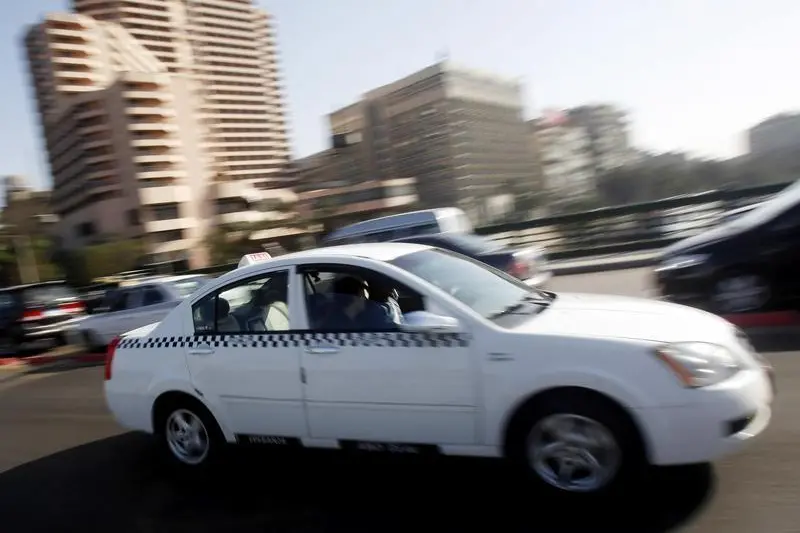PHOTO
New smartphone-based taxi services are becoming more and more popular in Egypt, reports Ahmed Kotb
Traffic congestion in Cairo is a severe problem that according to the World Bank costs the country about LE50 billion annually or approximately four per cent of GDP. Improving roads and public transportation services have been among the government's main attempts to tackle the problem.
In 2009, the government introduced a project to replace the old black-and-white taxis in Greater Cairo with newer white ones that have fare meters and air conditioners.
However, despite substituting about 45,000 taxis during the six years of the project, many passengers still have a list of complaints including broken metres and air conditioners, indecent behaviour by some drivers including sexual harassment, overcharging, and even robbery. Other drivers can be reluctant to take customers to their destinations in the first place.
But now smartphone applications designed to enable users to order taxis are helping to solve these problems.
Uber, a smartphone transport application, was launched in Egypt in February. It allows anyone to submit a trip request via a mobile application, with the nearest cab driver then arriving at the customer's location in no more than ten minutes, according to Anthony Al-Khoury, Uber's expansion manager for the Middle East and North Africa region.
Uber is an American international transportation network company which was founded in 2009 and is headquartered in San Francisco, California. It develops, markets and operates the Uber mobile app. The service is available in more than 50 countries.
Al-Khoury said that Uber was a technology-based company and this made the application's interface effective and easy to use. "Once a trip request is made, customers can view the profiles of cab drivers near them, including their pictures and reviews from previous passengers," he said, adding that this could make customers feel more comfortable.
"It is the safest ride customers can experience," he stressed.
The Uber system is also cashless, meaning that no physical payment is made. When installing the application on their phones, users are asked to enter their credit card details which will be used for payment after reaching their desired destination.
The mobile application also gives the customer an option to specify the destination while placing a trip request and then keeps track of the taxi's location until it reaches the destination. "This maximises safety," Al-Khoury said.
Although private information relating to credit cards or trip locations is protected, many Egyptians still either do not have a credit card or do not use it for electronic payments, fearing cyber-crime. "This is a challenge for us, but we are working on an awareness campaign to help make more people realise how safe it is to use their credit cards online," Al-Khoury added.
Another Uber advantage is that it is five per cent cheaper than the fare charged by a normal white taxi, he said. The official fare of the latter, in cases where the meter is working, includes LE3 for the first km and then LE1.5 for every additional km.
Uber has been doubling its revenues and number of trips on a monthly basis ever since it was introduced to the Egyptian market, Al-Khoury said. Its profits are based on slicing a 20-per-cent share from each trip's cost. "Egypt is the fastest-growing market for Uber in the region," he said.
Easy Taxi is another online service that allows customers to book and track a taxi in real time through a mobile application. It started operating in Egypt in 2013 and currently has 30 per cent of Cairo's taxi fleet working through it, Bruno Xavier, managing director of Easy Taxi in Egypt, told the Weekly in a recent interview.
The difference between Easy Taxi and Uber is that customers pay the cab driver in cash.
Both Uber and Easy Taxi stressed that they take complaints very seriously and that some drivers could be "deactivated" from their systems in some cases.
Another similar initiative is also getting ready to enter the Egyptian market, this time called Pink Taxi. This woman-only taxi service is expected to hit the streets soon after acquiring the necessary permits and preparing its vehicles, according to the company's Facebook page.
Pink Taxi aims at offering a solution to the sexual harassment that some Egyptian women still suffer from on a daily basis. The company's drivers will all be females and their cars will be painted pink. It will also be based on a smartphone application to request trips.
© Al Ahram Weekly 2015





















